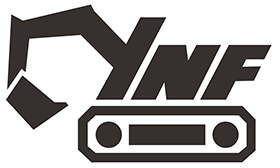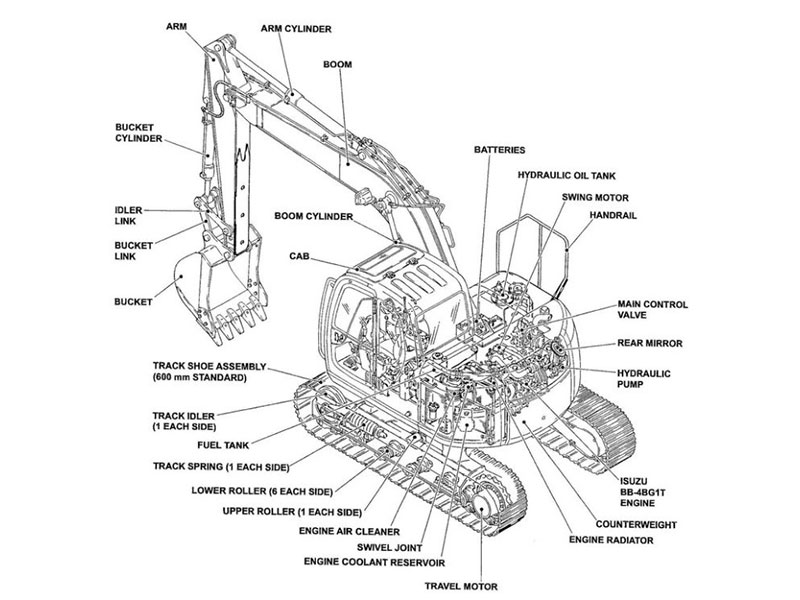Excavators are among the most utilized machines you will likely encounter at any construction site. Their advantage is that they offer many classes, and the jobs that are offered can be diverse. Depending on the class of excavators and the construction project, the benefits that the excavators provide vary depending on the size of the project.
The Excavator has several tools mounted on it to enable it to accomplish several operations. Some of the standard attachments used with excavators include buckets, clamps, augers, breakers, and couplers.
Depending on the type of attachment, these machines can be used for digging, moving debris, lifting, etc. Since they are critical machines in many construction projects, the slightest hitch with any of the excavators can result in a project disruption.
Excavator Parts that Need Common Replacement
When it comes to excavator operation, environmental conditions have a powerful impact, and extreme environments mean the excavator part would wear out faster. Although the user manual of an excavator specifies the maintenance hours, it may no longer be accurate if the Excavator is operating in a challenging environment. To keep the construction operations running smoothly, you should keep the following excavator parts for replacement, as they are the most affected.
Air Filters
Air filters are designed to capture these particles and ensure they do not transverse into your machine’s engine. There are two parts to an hydraulic air filter: an inner and an outer filter. The inner filter is placed within the outer filter. The outer filter mainly serves the purpose of the first filtration stage, which is to remove most of the airborne particulate matter. The last one is the inner filter that helps not let any particles enter the engine at all costs. Outer filters are normally more replaceable than inner filters. Some signs may indicate that your air filters require replacement, which include poor engine performance, poor fuel economy, failure to ignite, weak sounds emanating from the engine, and warning lights. All the manufacturers advise that one should use a filter gauge to check whether the air filter requires replacement and to check them often to ensure there is a problem. It is always important to check your service manual for your Excavator; the manual will indicate the frequency at which you should replace the filters. New air filters range in cost from $15 up to $150.
Hydraulic Filters
Hydraulic filters help remove contaminants from hydraulic fluid. If the fluid gets dirty, the parts of your excavator hydraulic system will start getting damaged. Another symptom that indicates something is wrong with the hydraulic system is when power to the Excavator or its tools is cut. These signs should indicate a new hydraulic filter: low flow rates, low pressure, unusual sounds, slow movement of machinery, and hydraulic oil leaks. The replacement frequency may differ with the make and model of your Excavator, but most hydraulic filters need replacement every 1000 operating hours. New hydraulic filter prices range from $10 to $150, depending on your kind of Excavator.
Belts
Belts are critical to the performance of engines and hydraulic systems. They distribute power between engine components and other systems throughout the machine. Most engine belts fall into one of four categories: v-belts, serpentine belts, air conditioning belts, and fan belts. Symptoms that your belts may need to be replaced include apparent wear or damage, squeaking noises while the equipment is running, decreased power output, or poor performance. If your air conditioner’s belt fails, it will cease working. If your serpentine belt breaks, the entire machine will shut down. High heat can degrade the flexibility of rubber belts, causing them to slope.
Oil Filter
Gasoline filters remove impurities such as sand from the gasoline before it reaches the engine. If your machine hesitates or sputters, it could be time to replace the fuel filter. Other typical indicators your filter needs to be replaced include malfunctioning gasoline pumps, poor engine efficiency, and a misfiring engine. Changing your fuel filter at least once a year is deemed normal. Your machine’s service manual should include specified intervals for replacing your gasoline filters. New fuel filter prices range from $15 to $70, depending on the brand and model of your Excavator.
Seals
Seals are important in joining two surfaces and also protecting equipment from any fluid or gases that may leak. Two of the most common types of seals are gaskets and o-rings, which are used in hydraulic systems, engine parts, and pipe connections, among other applications. Common issues such as wear, high pressure, and heat erosion are likely to damage seals that are non-airtight or liquid-tight. Seal prices may vary from $1 to $100.
Conclusion
The correct replacement spare parts are essential for maintaining your Excavator’s efficiency and longevity. Investing in crucial components like hydraulic filters, track chains, undercarriage parts, and engine belts can prevent costly downtime and extend the life of your machine. Regular maintenance and timely replacement of these parts ensure your Excavator rates at peak performance and protect your investment in the long term.





